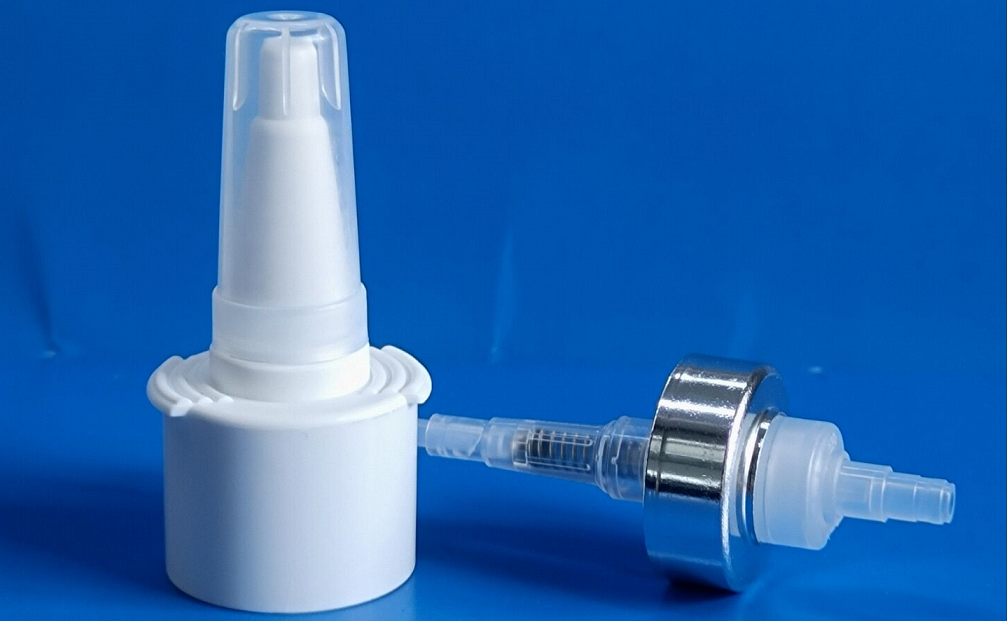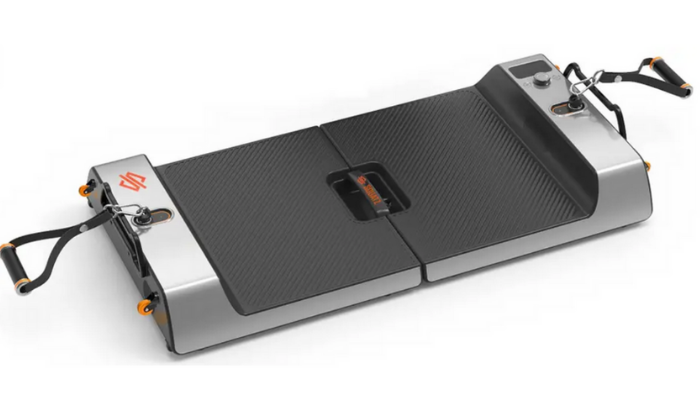Pre-filled vs. Refillable Nasal Spray Pump Systems: A Comparative Analysis
Nasal spray pumps are widely used for delivering medications to treat a range of conditions such as allergic rhinitis, sinusitis, nasal congestion, and even certain vaccines. These systems provide a convenient, fast-acting delivery route, offering targeted therapy directly to the nasal cavity. As the market for nasal spray pumps grows, manufacturers are designing a variety of systems, each with its advantages and drawbacks.
Among the most common types are pre-filled nasal spray pumps and refillable nasal spray pumps. Both offer distinct features that cater to different patient needs, treatment regimens, and usage patterns.
Nasal Spray Pump System
A nasal spray pump system is a device designed to deliver medication directly into the nasal cavity, allowing for rapid absorption through the mucous membranes. Typically used for treating conditions like nasal congestion, allergies, and sinusitis, these systems offer a convenient and effective way to administer drugs.
The pump works by creating a fine mist that ensures uniform distribution of the medication, providing precise dosing with each spray. Nasal spray pumps are often favored for their ability to deliver drugs directly to the site of action, reducing the risk of side effects that can occur with oral medications.
Additionally, nasal sprays are ideal for certain treatments, such as nasal vaccines or local decongestants, where quick onset and targeted therapy are crucial. With designs that can range from pre-filled to refillable pumps, nasal spray systems offer flexibility, ease of use, and patient comfort.
Pre-filled Nasal Spray Pump Systems
Pre-filled nasal spray pumps come with a fixed amount of medication sealed in the device at the time of manufacturing. These systems are ready for use upon opening, offering simplicity and convenience to patients. Pre-filled systems are typically disposable, and once the medication is used up, the device must be discarded.
Advantages of Pre-filled Nasal Spray Pumps
- Convenience and Ease of Use: Pre-filled nasal sprays are often ready to use immediately, requiring no preparation or assembly. This makes them particularly user-friendly for patients, including those who may have difficulty handling more complex devices.
- Accurate Dosing: Since the pump is pre-loaded with a specific amount of medication, the patient can receive an exact, consistent dose with each spray. This is especially important for drugs where precise dosing is essential for effectiveness.
- Reduced Risk of Contamination: Pre-filled nasal sprays are typically designed with sterile components, reducing the risk of contamination during use, as there is no need for handling or refilling the device.
- Portability and Disposability: Pre-filled systems are often compact and convenient to carry. Their disposable nature also means that patients do not need to worry about maintaining or cleaning the device after use.
Challenges of Pre-filled Nasal Spray Pumps
- Environmental Impact: Since pre-filled systems are designed for single-use, they contribute to environmental waste. With growing concerns about sustainability, the disposal of plastic and packaging can be a significant issue.
- Cost Considerations: Pre-filled nasal spray pumps tend to be more expensive due to their disposable nature and the manufacturing process involved in packaging and filling them with medication. This can add up for patients who require long-term treatment.
- Limited Flexibility: Once the medication is used up, the device cannot be refilled, meaning patients must purchase a new one. This lack of flexibility can be inconvenient for those who need continuous treatment.
Refillable Nasal Spray Pump Systems
Refillable nasal spray pumps are designed to be reused multiple times. These devices allow patients to refill them with medication as needed, making them a more sustainable option in certain cases. Refills can be done with either bulk medication from the pharmacy or pre-measured refill cartridges, depending on the design of the system.
Advantages of Refillable Nasal Spray Pumps
- Cost-Effectiveness: Refillable pumps can be more economical in the long term, as patients only need to purchase the refill solution rather than an entirely new device every time the medication runs out. This can be particularly beneficial for long-term treatments.
- Sustainability: Refillable systems contribute less to environmental waste compared to pre-filled options. By reusing the device, patients help reduce plastic consumption and the carbon footprint associated with manufacturing disposable products.
- Customizable Dosage: Some refillable nasal sprays allow for flexibility in the amount of medication dispensed. This can be an advantage for patients who may need to adjust their dosage depending on their treatment plan or changing symptoms.
- Long-Term Usability: Refillable devices are ideal for patients who require ongoing medication, as they can continue using the same system throughout their treatment, provided it remains in good working condition.
Challenges of Refillable Nasal Spray Pumps
- Risk of Contamination: Unlike pre-filled systems, refillable nasal spray pumps are exposed to the environment during the refilling process. If the device is not properly cleaned or handled, there is a potential risk of microbial contamination, which could compromise the safety of the medication.
- Complexity in Usage: Some refillable nasal spray pumps may require more effort to operate, especially if they need to be manually refilled with bulk medication. This can make them less convenient for patients who prefer a simpler, ready-to-use option.
- Maintenance: Refillable pumps require more attention to maintenance and proper cleaning to prevent clogging or degradation of the device. Patients must ensure that the pump is regularly cleaned and kept in good condition to maintain the device’s functionality.
- Limited Availability: Depending on the region or the medication being used, refillable nasal spray pumps may not be as readily available or widely prescribed as their pre-filled counterparts. Some medications may not come in refillable formats, limiting the options for patients.
Key Differences Between Pre-filled and Refillable Nasal Spray Pump Systems
| Feature | Pre-filled Nasal Spray Pumps | Refillable Nasal Spray Pumps |
| Convenience | Ready to use, no preparation needed | Requires refilling, more effort involved |
| Cost | Higher initial cost due to single-use design | More economical over time, refills are cheaper |
| Sustainability | Contributes to environmental waste | More eco-friendly with reusable device |
| Dosing Accuracy | Consistent dosing with pre-measured amounts | Customizable dosage but may risk dosing inconsistencies |
| Risk of Contamination | Lower risk due to sealed packaging | Higher risk if not properly cleaned or refilled |
| Flexibility | Fixed amount of medication, no reusability | Flexibility to refill with the desired medication |
| Patient Compliance | Simple, user-friendly, and disposable | May require more effort, but cost-effective long term |
Conclusion
Both pre-filled and refillable nasal spray pump systems have their own distinct advantages and disadvantages, and the choice between them largely depends on patient needs, treatment duration, and environmental considerations.
Pre-filled systems offer convenience, accuracy, and sterility, making them ideal for short-term or acute treatments. On the other hand, refillable systems provide a more sustainable, cost-effective option for long-term use, though they may require more effort in terms of maintenance and refilling.
Ultimately, the choice of system will depend on factors like the patient’s treatment regimen, the medication being administered, and personal preferences. Both systems are valuable tools in modern drug delivery, each playing a critical role in improving patient outcomes while balancing convenience, cost, and sustainability. As technology advances, there is potential for further improvements in both types of systems, leading to even greater patient satisfaction and more efficient treatments.




